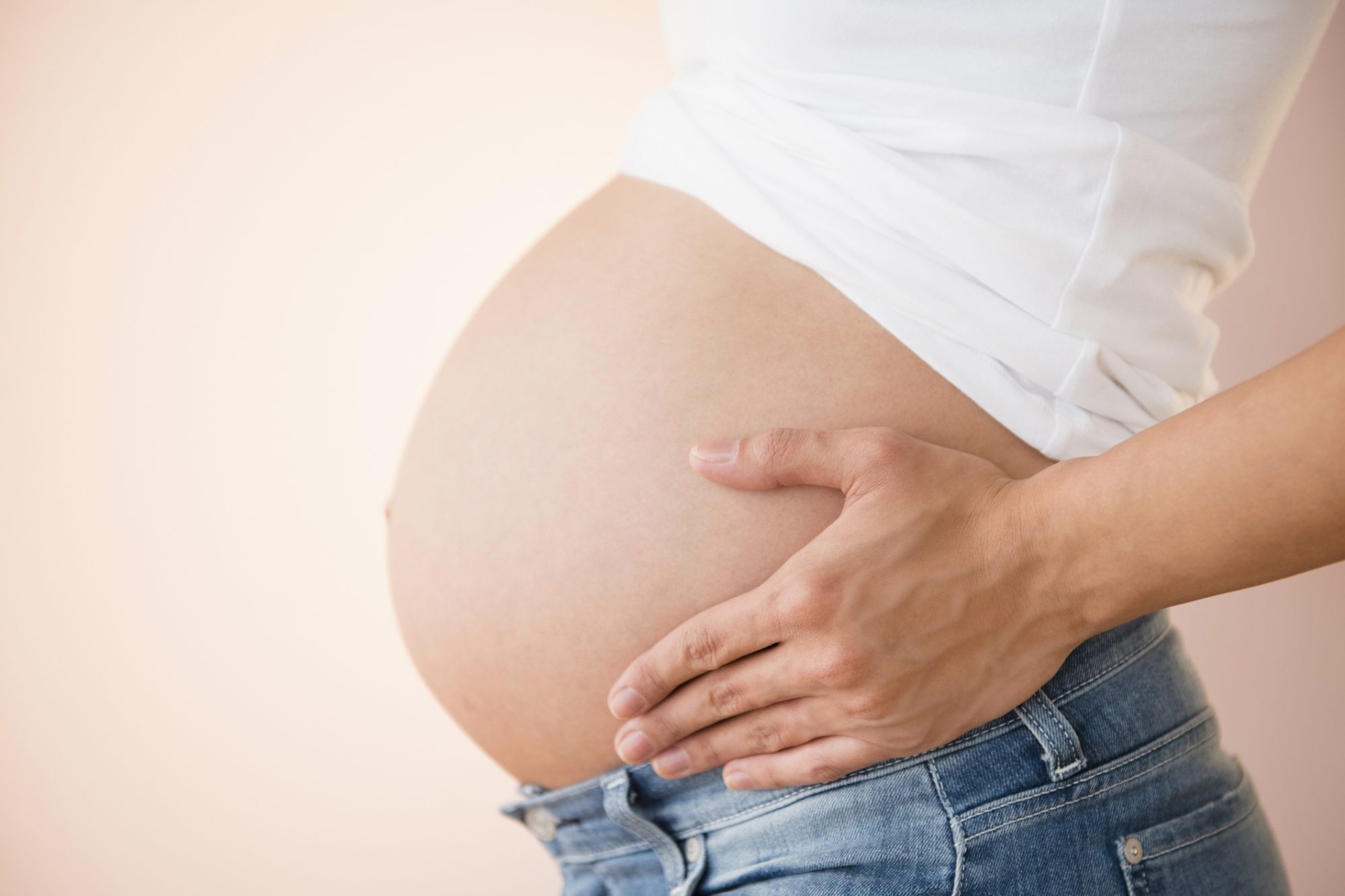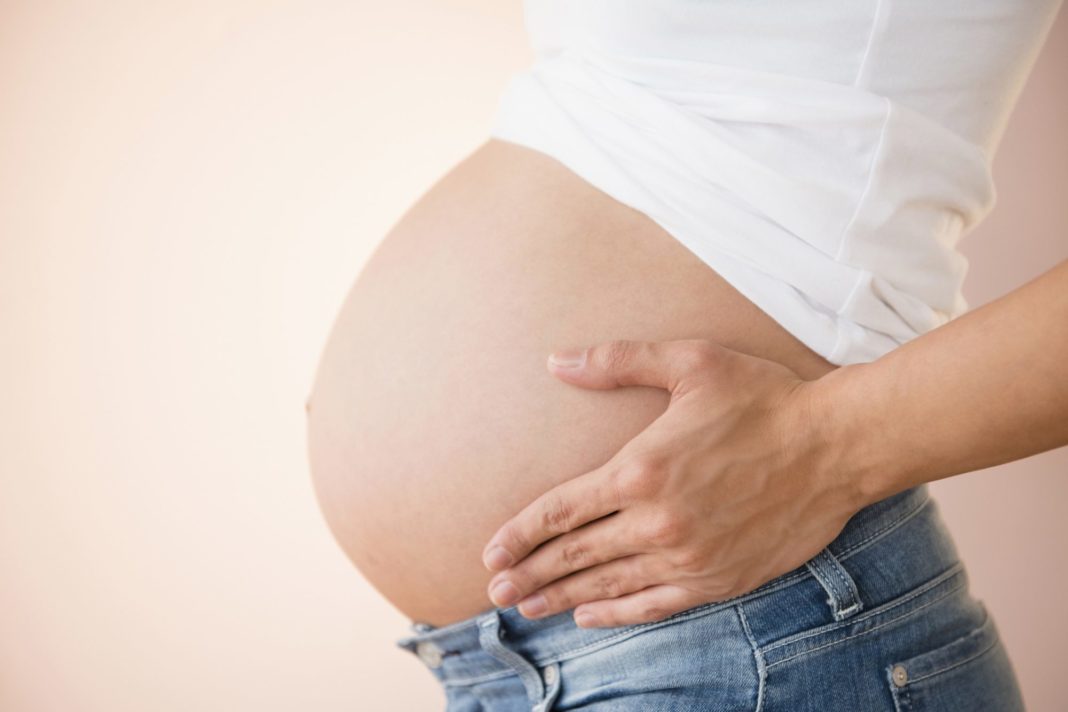
Are you experiencing back pain during pregnancy? You're not alone. It's estimated that 50 to 80 percent of expectant parents endure this all-too-common symptom. Most pregnant people feel the aching in their lower back, but some report pain in their upper back, neck, and/or shoulders.
"While upper back pain during pregnancy is less common than lower back pain, it can and does occur," says Dr. Apurva Shah, M.D., a Boston-based OB-GYN. "Most expectant mothers describe this as dull but intense pain, one which is often severe enough to restrict one's ability to function. It also tends to worsen as the day goes along, especially for moms who are standing on their feet all day."
So what causes this irritating symptom and, more importantly, how can you relieve it? Here's everything you need to know about upper back pain during pregnancy.
When Does Upper Back Pain Start in Pregnancy?
Pregnancy back discomfort can occur at any time, but upper back pain typically affects those in their first and third trimesters. You can thank increased stress and hormonal surges in early pregnancy, says Michelle Tham Metz, M.D., an OB-GYN for Health Central and assistant clinical professor at Mount Sinai Hospital, New York. In the third trimester, growing breast size and a changing center of gravity are likely to blame.
What Causes Upper Back Pain During Pregnancy?
There are many potential causes for upper back pain in pregnancy, including stress and hormonal changes. The hormone relaxin, for example, prepares a person's body for pregnancy and childbirth—but it can cause some unwanted side effects, like body aches and pains. "Hormonal changes during pregnancy can also cause a laxity of the ligaments and muscular tone, causing them to work harder—and thus additionally causing pain," says Kecia Gaither, M.D., a Bronx-based double board-certified OB-GYN.
Larger breast mass may cause residual pain as well. According to Dr. Gaither, "Increased breast girth can add weight to the chest, altering posture and increasing muscular work and strain along the upper back."
Finally, uterus changes and weight gain can cause upper back spasms or strains. "As the uterus grows upwards and outwards, the spinal alignment shifts the center of gravity," notes Dr. Gaither. "There is a pregnancy 'lordosis,' or an inward spine curvature. Muscle spasms can occur due to this change, in addition to the pregnancy weight changes, causing pain."
How to Relieve Upper Back Pain During Pregnancy
While upper back pain during pregnancy is common, it's possible to get some relief. "Acupuncture and core strengthening work are both helpful to relieve back pain," suggests Dr. Tham Metz. "Staying active and gaining a healthy amount of weight is also key."
Supportive shoes and a good bra can make a big difference, especially if the upper back pain is due to increased breast mass. Some experts also suggest prenatal massage to relieve symptoms. Warm or cold compresses might be worth a shot too—and don't be afraid to ask your doctor about pain medication if the discomfort persists.
To prevent upper back pain, you should stretch regularly, avoid lifting heavy objects, and maintain good posture. That's because standing tall (chest high, shoulders back) can alleviate tension and stress.
When to See a Doctor for Upper Back Pain During Pregnancy
Despite being a major source of discomfort, upper back pain during usually isn't alarming. "Back pain during pregnancy is not cause for concern unless it interferes significantly with your day-to-day activities," says Cynthia Flynn, M.D., a Florida-based OB-GYN.
That said, if you find your back pain is persistent and/or is severely affecting your quality of life, you should discuss it with your doctor. "Some conditions can manifest with back pain, such as liver disease or a lung infection [and also preterm labor], so always make sure to touch base with your OB-GYN," says Dr. Tham Metz.

































